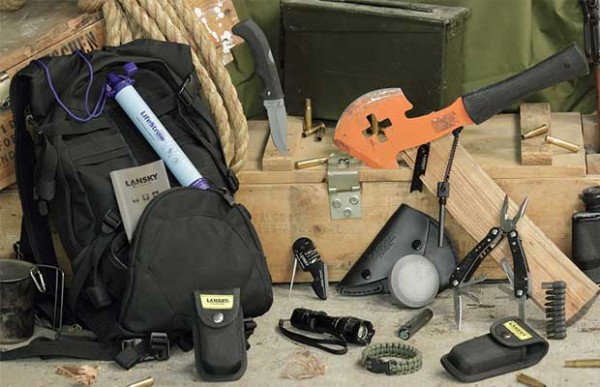MUST-HAVE items to use for trade during an economic collapse
04/20/2018 / By Edsel Cook

When SHTF and the economy comes crashing down, money will become useless while mundane items will transform into invaluable commodities. Preppers should set up a separate stockpile of such goods and reserve it for bartering and trade during post-collapse events, according to an article on The Prepping Guide.
If you’re a prepper, you already harbor an excess amount of everything you may need in the future. But that is usually just enough to sustain you or your loved ones. You will have little to spare for emergency trading.
Dedicating a section of your supplies for trade beforehand will save you the agonizing problem of dipping into your supplies to trade for something you also need. It also gives you a good idea of the relative value you possess as a trader.
Your trading stockpile will start out as a humble gathering of everyday items. It will grow over time as you discover new goods and add them to your existing collection.
Your first trading network will also be small. For safety’s sake, you’d best limit it to people you know and trust. Do all trading in public locations and make sure everyone is clear about what they want. (Related: The barter and trade economic system of a SHTF economy; interview of a survivor who made it through.)
You can start off your supply of potential trade goods by stocking up on the following items:
- Medicine (antibiotics, pain-killers, allergy medications); Vitamins; First-aid supplies (antiseptic wipes, band-aids, antibacterial creams, suture kits and specialist first-aid treatment equipment); Condoms and contraceptives; Feminine hygiene products
- Non-perishable foods; Alcohol (liquor); Powdered milk; Pasta; Coffee; Powdered gravy
- Fuel; Propane gas; Rechargeable and regular batteries; Solar and fuel generators
- Chicken; Seeds; Tobacco
- Baby supplies (baby food, diapers, baby aspirin, and ointments); Toilet paper; Soap and shampoo; Shoes
- Can openers; Water filters; Construction and repair tools
- Lighters and matches; Candles; Flashlights; Solar lights; Duct tape
Don’t mix up “trade goods” and “investment goods”
Many guides urge investing in gold, silver, and other precious metals. After all, prepping is all about preparing for SHTF situations like economic collapse and natural disasters.
Sponsored solution from the Health Ranger Store: Lab-verified Nascent Iodine solution is a dietary supplement that provides your body with supplemental iodine to help protect your thyroid during radiation exposure. Nuclear accidents such as Fukushima (or nuclear war) can expose your body to radioactive iodine-131, a dangerous radioisotope. Pre-loading your system with stable iodine occupies the iodine receptor sites on your organs, causing your body to naturally expel radioactive iodine you may have been exposed to through air, food, water or milk products. This defensive strategy is recommended by nearly all health authorities, worldwide, including the Nuclear Regulatory Commission. Discover more at this link.
But these items should not be confused with trade goods during post-collapse. Trade goods are valuable because they are items that people cannot do without.
When SHTF, people will look for food, water, shelter, and the like to survive the current chaos. They won’t care for gold or silver because those won’t feed hungry mouths, keep the elements away, or protect them from harm.
Instead, precious metals should be considered as investment goods. They’re useless during SHTF conditions, but they’ll grow in value once society starts to pull itself together.
If you are going to stockpile investment goods, go for gold instead of silver. There’s historical precedence for this; most previous economic declines saw the value of gold rise while the price of silver dropped.
A different and better kind of investment is to pick up a useful skill or service, such as plumbing, electrical work, or carpentry. You can trade your valuable services to other people, be it during normal economic conditions or post-collapse situations.
Learning a new skill usually doesn’t cost you anything but time and effort. What’s more, the ability to tend gardens, take care of animals, nurse injured people, repair homes and equipment, or defend yourself or other people cannot be taken away from you.
In a world without the rule of law, desperate people could attack or kill you for the precious metals, trade goods, and animals you have. But they can’t steal your ability to grow food crops or tend wounds.
Visit Preparedness.News.
Sources include:
Tagged Under: barter, barter economy, Collapse, Gear, preparedness, prepping, prepping tips, SHTF, SHTF trade




















